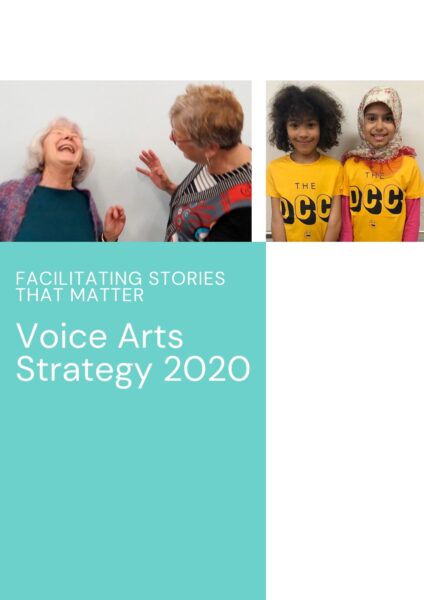Who we are
Voice Arts is made up of highly skilled theatre practitioners committed to working with and for community. We are a unique community-interlaced organisation, always working in partnership with others to develop and deliver creative engagement projects that support social justice, creative citizenship, personal and community development.
We have a voluntary board of trustees, a director who manages the trust on a day-to-day basis and a project co-ordinator.
What we do
We gently guide and support people to explore their histories, beliefs and choices through the roles of writer and performer. The actors we work with are those who are frequently unseen and unheard. The scripts we create are from stories that lie untold, lives that deserve acknowledgement, histories that can inspire those who listen, reflections that can heal.
We work in group workshops where participation is effortless, deeply fun and socially therapeutic. (Where necessary we also work with individuals.)
Together the group creates a body of work they then present back to the wider community; people telling their own stories in their own voice. Participants can do this through the medium of theatre, film or audio.
How we do it
Voice Arts Trust has no physical base. We take our work into the community, using existing community halls, schools and shared areas, making them into creative spaces. We seek to create an environment where participants are safe to share and create together, to learn from each other, to be both student and teacher.
Our history
Voice Arts was established in October 2005. Our projects have been supported by the Wellington City Council, UNESCO, MSD, Radio New Zealand, Department of Labour, Museum of Wellington, Te Puna Whaiora Children’s Heath Camps, United Nations High Commission for Refugees (UNHCR), NZ Lotteries Grants Board, JR McKenzie Trust, The Winton and Margaret Bear Charitable Trust, Pub Charities and a small number of private donors.
Principles
Voice Arts is committed to:
- Using arts-based education to empower individuals and communities to greater self-reliance
- Using arts-based education to facilitate positive change and encourage greater community cohesion
- Working with people on the margins of society
- Focusing arts-based education on issues of health, justice and social welfare
- Respecting and implementing the dual heritage of the partners of Te Tiriti o Waitangi (the Treaty of Waitangi)
- Respecting the cultural diversity of people and encouraging people from all nationalities to utilise the Trust’s services
- Inspiring people to reach their full potential
- Maintaining the highest standards of professionalism and integrity.

